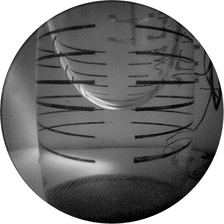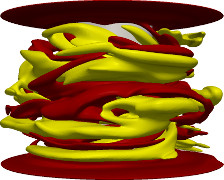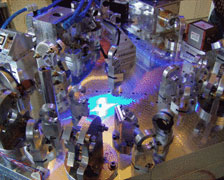fluid dynamics
Fluid flows are ubiquitous in engineering and nature but accurate predictions of their behavior remain elusive despite centuries of research. In our department we investigate the dynamics of fluids by combining theory, computer simulations and laboratory experiments under terrestrial and microgravity conditions. Our focal points are turbulent and multiphase flows, as well as ignition, combustion synthesis, acoustics and propulsion systems. We apply the knowledge gained from our fundamental research in these areas to control, optimize and develop new technical processes. Of special interest here are applications in aerospace engineering, such as cryogenic liquids found in the upper stages of rocket launchers or gas turbines.
Research Groups
The Multiphase Flow group at ZARM considers problems in fluid mechanics including heat and mass transfer, where free surfaces are present. We seek solutions for the velocity, temperature and concentration field, and the pressure. We are scaling our results from laboratory scales to real applications. Free surfaces might have curvatures which determine the pressure of the system. The computation of free surfaces requires taking the second derivative of the position, and causes a free boundary problem. more...
The dynamics of fluid flows plays a key role in numerous natural phenomena, and determine the efficiency of many processes in engineering. In general fluids can flow in a smooth and orderly manner, such as blood does in small capillaries or fluctuate erratically as seen in the swirls behind an airplane wing. Hence making quantitative predictions of fluid flows is of crucial relevance in engineering practice. Our group addresses this challenge by doing computer simulations of appropriate fluid transport models.more...
The research activities of the Combustion Engineering group deal with application oriented fundamental questions. Experiments under microgravity conditions are one, but not the only important tool to answer those questions. To support the development of future gas-turbines of the aero-propulsion type and for electric power generation of the lowest possible emissivity regarding environmentally harmful nitric oxides, we examine the self-ignition behavior of droplets and sprays at high temperature and high pressure. more...





 "
"